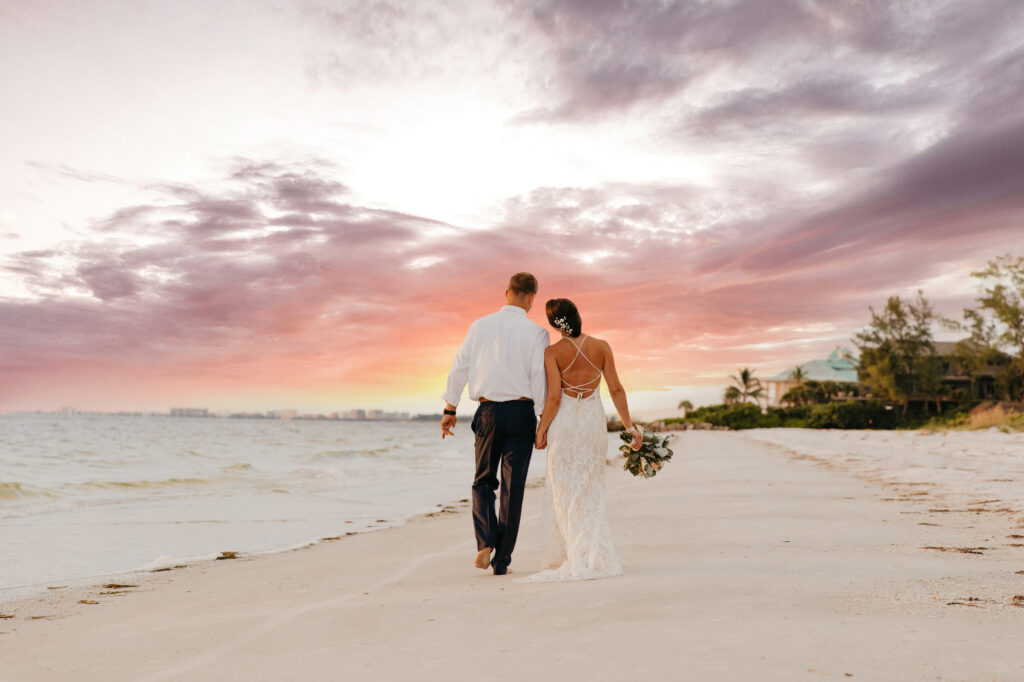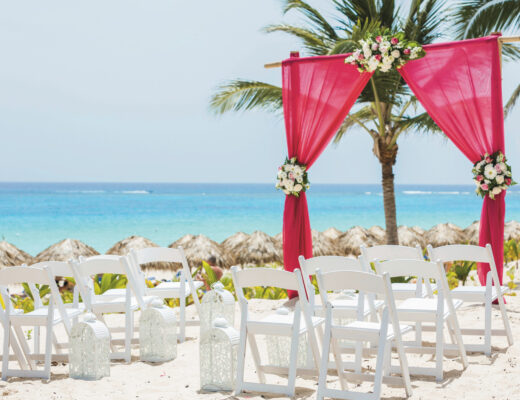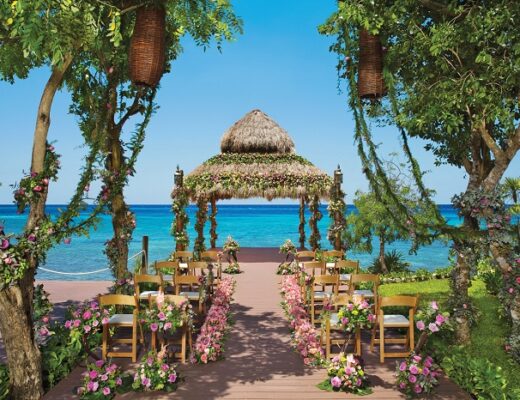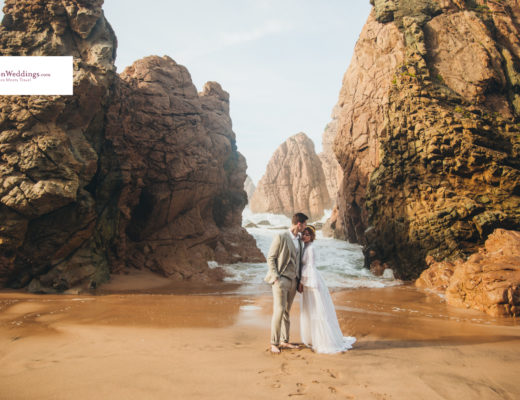Congratulations, you’re engaged! Being married is wonderful, but don’t discount the engagement period.
Of course, you’re probably wondering when to start planning a wedding. How long are most people engaged, anyway?
Never fear. This all-in-one guide will answer all your questions. We’ll help you plan your timeline, whether your engagement is months or years.

Enjoy the Engagement Period
Take the time to celebrate this period of your life. There’s no rule for how long after an engagement you need to have a wedding. A longer engagement can be a plus — it gives you the time to enjoy being together and plan at a more relaxed pace. Without a time crunch, you can craft a plan for a truly personal and unique wedding.
Initial Conversations to Have
Your first few conversations with your fiancé should touch on the details of the future. How long does each of you foresee being engaged? What kind of wedding are you imagining — something in your hometown? An exotic destination? A cozy celebration or a big bash with all your family and friends?
Wedding Planning Timelines Based on Your Wedding Date
When should you start planning a wedding? Well, the answer may depend on the type of wedding that you want to have and your preferred wedding date. Our timelines will help you discover when to start planning a wedding, no matter when you decide to celebrate the big day.
If Your Wedding is 18 or More Months Away
Does the prospect of being engaged for a year or two seem crazy to you? It’s a long time to wait to start your life together! But there are some advantages, too.
For one thing, you can take the planning process at a more relaxed pace. You’ll have an easier time getting the vendors and venues that you have your eye on if you’re booking further out.
Long engagements can also ease the financial burden since you’ll have more time to plan your budget and save up.
So, what are the first steps of planning a long engagement?
The good news is, you have time to spare. Spend a month or so just relishing your status as an engaged couple. Share the happy news and let the well-wishes roll in.
After a few months, you can start talking about the first few steps. Draw up a tentative budget and draft a guest list.
Once you reach between a year and a year and a half out from the big day, you’ll want to start booking the vendors. This gives you a couple of months after the question is popped to do your research.
If Your Wedding is a Year or More Away
Most couples are engaged for somewhere between a year and a year and a half. This usually gives you enough time to celebrate and get all your plans in place. You’ll also have enough time to adjust plans if needed.
For this length of engagement, you have a few weeks before you’ll need to start planning. Start by reviewing your budget and drafting up a guest list. Then begin researching venues. You’ll want to reserve your main vendors within six months of getting engaged.
If Your Wedding is Less Than a Year Away
If you plan on being engaged for a year or less, you’ll need to start planning right away! A short engagement comes with challenges. You might have a hard time finding vendors available within your timeframe. Planning needs to go at a quick pace.
For a short engagement, dive in within a couple of weeks or even days of popping the question. Focus on the most important venues and vendors first. In a situation where time is of the essence, a wedding planner might be invaluable.
Short engagements are perfect for destination weddings. These often come as a package deal from a resort or other venue, so there’s less planning involved. And if you plan a destination wedding with us, the process is even simpler since one of our Certified Destination Wedding Specialists will streamline your planning process by handling all the details for you–ideal for a short engagement.
If Your Wedding is 6 Months Away
Planning a wedding within six months is possible, but it does require a focused and precise approach. So, when should you start planning a wedding if you want to be married within six months? The answer is right now. You should start the process by booking a venue or an all-inclusive resort immediately, confirming the date for your event and securing travel arrangements if you decide to have a destination wedding.
By taking care of the key details quickly and working efficiently to finalize all vendors, you will be able to streamline the planning process. Be sure to send save-the-dates to your guests as soon as possible so that they can begin planning, and always rely on a wedding planner, like our Certified Destination Wedding Specialists, or resort coordinator, in order to streamline decisions and keep the process stress-free.
If Your Wedding is 3 Months Away or Less!
Few people are only engaged for a few months. But if that’s what you and your fiancé are planning, you’ll need to hit the ground running!
There’s no waiting period when you only have a few months. As soon as you’re engaged, it’s time to get planning. Have an open mind and go into it knowing that you might need to change your vision along the way. With only a few months, many vendors may not be available on your chosen date.
For these couples, simple is better. Keep your wedding party and guest list small. Or consider eloping or celebrating with a destination wedding!
Destination weddings can be perfect for a very short-term engagement. With more organized package options, wedding planning is more streamlined. Our Certified Destination Wedding Specialists simplify things even more, so you can focus on what matters.

The Wedding Planning Process: First Steps
Many couples find themselves wondering, How long after engagement is the wedding? Your wedding planning timeline will vary based on your personal preferences as a couple, your availability and the type of wedding that you want to have. By laying the foundation for a smooth, stress-free experience, particularly when you are planning a destination wedding, you can fully enjoy the planning process. The key is to stay organized and remain flexible, especially as you begin to make decisions.
Regardless of when you want to have your wedding, you will find that the planning process involves these key steps:
Decide if You’re Having a Local or Destination Wedding
Before you can decide when to start planning a wedding, you’ll have to choose between a local and a destination wedding. In the dreamy afterglow of your engagement, talk to one another about what your ideal wedding might look like. Think about the budget that you have available, and the guest experience that you want to offer.
As you brainstorm ideas, your wedding vision will come to life, and you will be able to move forward with confidence. Keep in mind that destination weddings can offer simplicity, value and unforgettable settings, while local weddings may allow for larger guest lists and offer a sense of familiarity.
Set a Wedding Budget
The budget for your wedding serves as the foundation for the entire planning process. It’s critically important to set a realistic budget shortly after you get engaged, as this will guide every other decision that you make for your wedding.
As you consider the budget that you are comfortable with as a couple, be sure to prioritize must-have elements for your wedding day, research destination wedding packages and remember to factor in travel costs or group rates that may be available.
Create a First Draft Guest List
The guest list for your wedding impacts the venue that you choose, the budget that you set and the overall vibe for the celebration. Before you begin booking resorts, wedding packages and more, you will want to create a rough draft list of prospective guests that includes family, friends and others that you want to invite. Refine the list based on venue capacity and, if you are having a destination wedding, travel feasibility.
Hire a Wedding Planner
Working with a professional for your wedding allows you to enjoy personalized guidance and expert insight throughout the entire planning process. For example, when planning a destination wedding, local expertise and vendor connections are crucial to your success. By partnering with one of our Certified Destination Wedding Specialists, you can easily access the best resorts in your preferred destinations. It’s important to choose a certified planner who specializes in your chosen location, as this simplifies the logistics and ensures a flawless experience from start to finish.
Choose Your Wedding Party
No matter how long after the engagement the wedding is, you will want to select your wedding party early. This allows your closest friends and family to make the arrangements they need to travel to your celebration and allows them to help with all pre-wedding events.
Pick a Wedding Venue & Date
Once you have set the budget and determined the overall style for your wedding, it’s time to pick the perfect venue. You will want to select a venue that matches your vision, style and budget. When planning a destination wedding, early booking is the key to accessing the best available dates, particularly if you want to get married during the peak travel season.
Look Into Outside Wedding Vendors
Many all-inclusive resorts provide couples with options for in-house vendors, but some may prefer to bring in their own outside vendors for specific services. If you are planning to outsource your vendors, be sure to verify the resort’s outdoor vendor policies and fees before you book any additional services.
Create a Wedding Website
Communication is key to planning a destination wedding, and a wedding website can serve as the main hub for all wedding-related information. Build a website that includes travel details, an RSVP link and destination information. By creating a comprehensive wedding website, your wedding party and guests can stay informed and organized along the way.

Destination Weddings vs. Traditional Weddings
Destination Weddings: The Simpler Option
You might think that destination weddings are complex. But when it comes to planning one, they’re often the simpler option.
Why? Most destination wedding venues offer all-in-one packages. These cover everything from vendors to guest accommodations and more. That means less planning for you. Our Certified Destination Wedding Specialists streamline the process even more by coordinating directly with the resorts and vendors for you!
If you’re working on a crunched timeline, don’t worry. Many destination wedding venues have more availability, even last minute. Your guests will enjoy a vacation while you celebrate the happiest day of your life. And bonus—you can extend your stay for a romantic honeymoon without having to plan additional flights and accommodations!
Traditional Weddings: More Time-Intensive
Traditional weddings also have their pros and cons. You’re less likely to have the advantage of wedding packages — which means it’s up to you to book each vendor on your own. There’s much more to keep track of, from booking hotel blocks to creating a day-of timeline and even small details like renting chairs or transportation.
That doesn’t mean it’s never worth it. Some couples prefer to take charge of their wedding day, especially if they have a unique theme or plan. It can also be a good choice if you’re getting married in a family home or other place with personal meaning.
RELATED: Just Got Engaged? Here’s What You Need to Do Next!
Ready to Plan? Let’s Make It Easy!
So, when to start planning a wedding? Well, the answer is that it really depends on how big or detailed your dream day is going to be. There is no “one size fits all” solution here, so you and your partner need to sit down and have a heart-to-heart about what’s really important to you both and then go from there.
One thing is for sure: whether you have two years or six months until your wedding, the planning doesn’t need to be stressful. Our team is ready to help you streamline your planning process so you can enjoy your big day. If you’re ready to start planning your dream destination wedding today, simply fill out our wedding planning form to get started!
About the Author

Maggie Sabin
Maggie started as the SEO Manager at DestinationWeddings.com in 2024, where she works to drive organic traffic and conversions while creating meaningful, SEO-optimized content for the website. Previously, Maggie's career spanned from Human Resources & Recruitment to teaching at international schools for almost 10 years. Maggie spends her free time traveling, learning new languages, reading non-fiction books, working out, going to the beach and spending time cuddling her dog, Lola!




